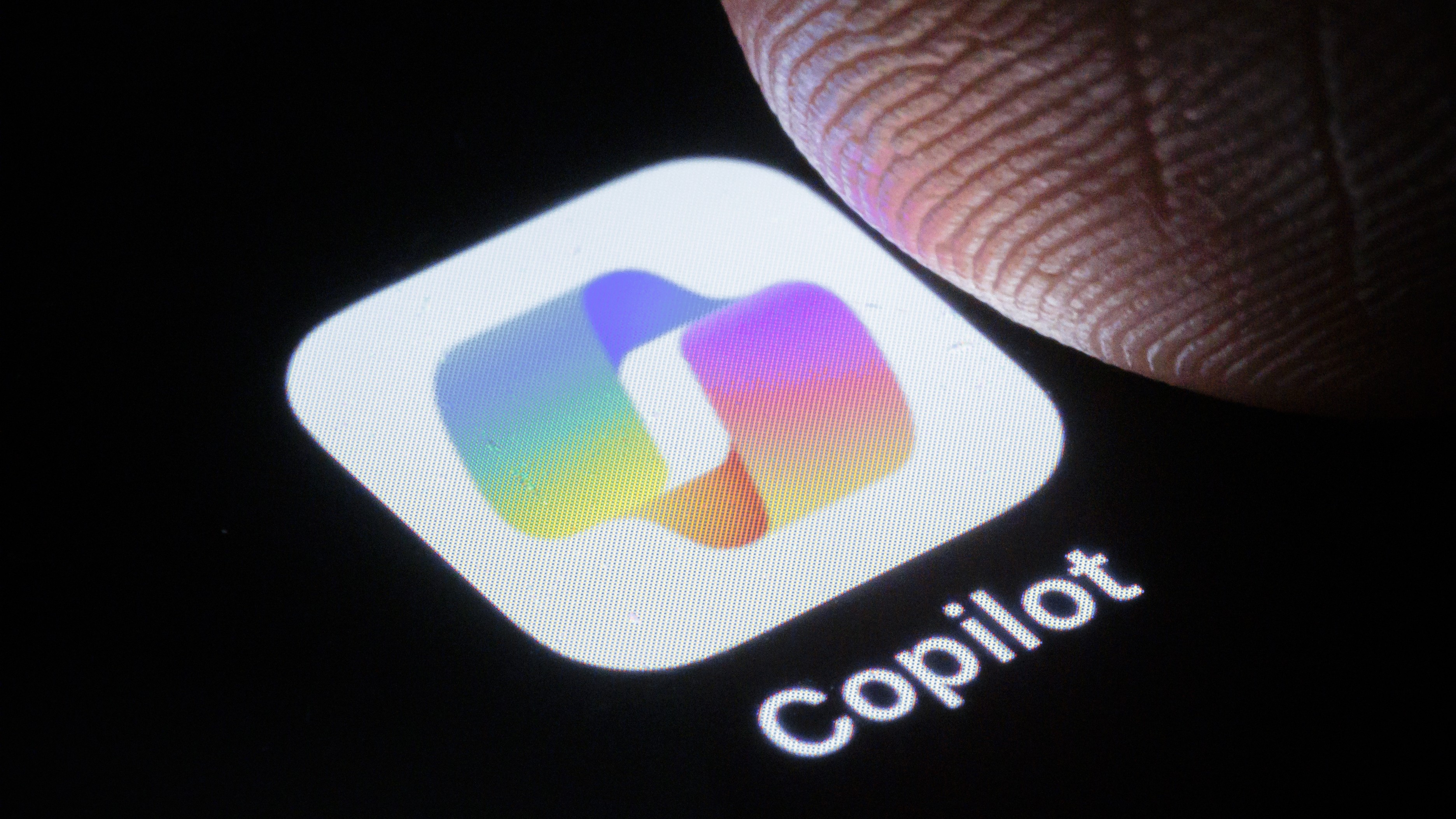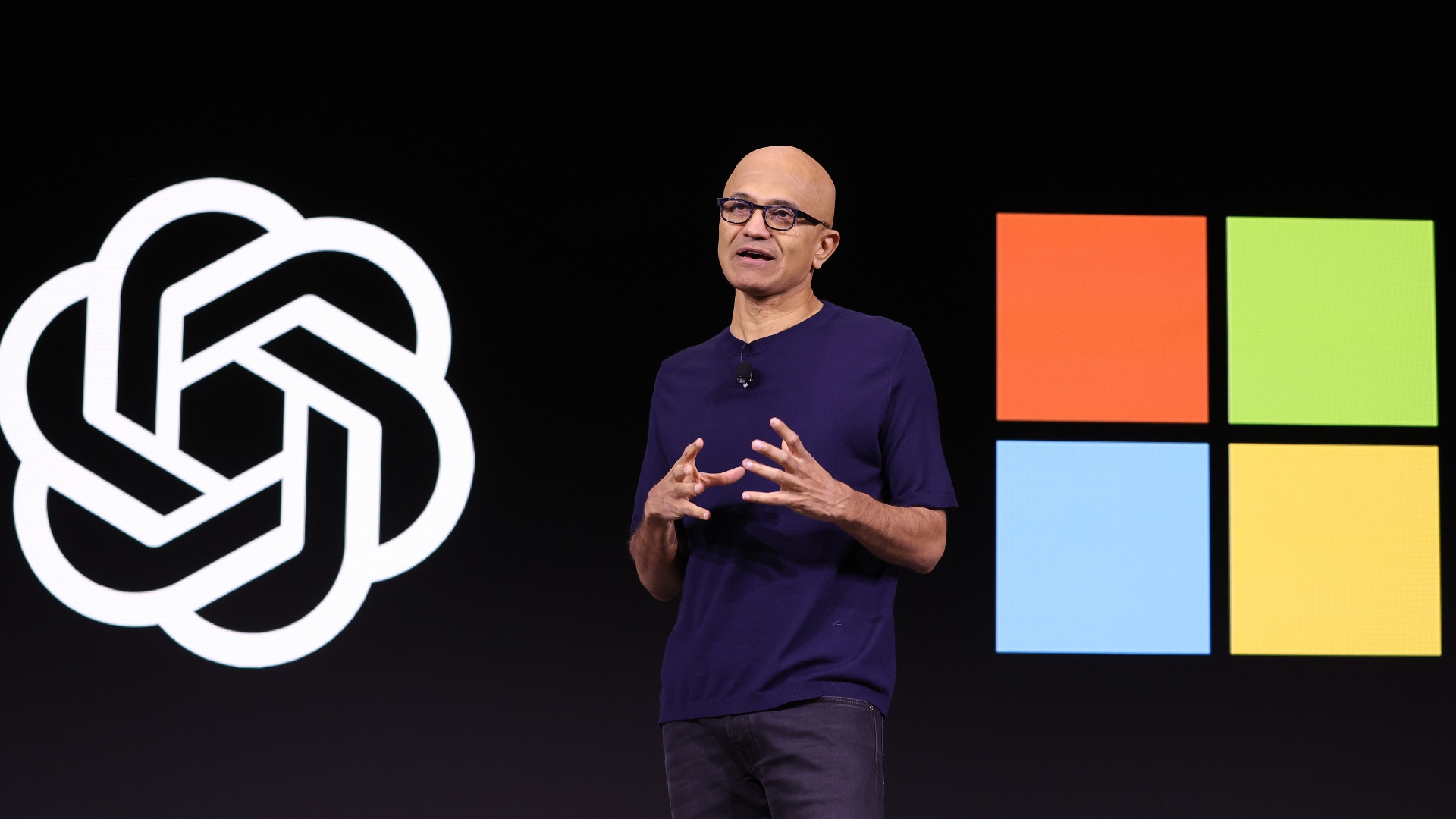Microsoft Copilot is "pretty important" but customers still prefer ChatGPT — "OpenAI has done a tremendous job"
Microsoft CEO Satya Nadella could be right about OpenAI's 2-year lead in developing ChatGPT as buyers ditch Copilot.

All the latest news, reviews, and guides for Windows and Xbox diehards.
You are now subscribed
Your newsletter sign-up was successful
This article has been updated with contextual information from Amgen, clarifying that the company uses both Microsoft Copilot and ChatGPT.
Despite Microsoft's multi-billion-dollar partnership with OpenAI, recent emerging reports suggest that the once-best "tech bromance" in history is seemingly fraying amid tension over the ChatGPT maker's for-profit transition.
In May, Microsoft Teams lead Jeff Taper admitted that Copilot and ChatGPT are virtually the same thing, but the former sports better security and a more powerful user experience.
This doesn't come as a surprise as Microsoft heavily relies on OpenAI's tech to power its AI efforts, including Copilot.
However, Microsoft's AI CEO, Mustafa Suleyman, revealed that the company is in the process of developing its own frontier AI models, though it might be 3 to 6 months behind OpenAI's. Suleyman revealed that Microsoft's strategy is to play a close second to OpenAI.
Regardless of Microsoft's efforts to make Copilot a superior product compared to OpenAI's ChatGPT, users are seemingly more inclined towards the latter.
According to Bloomberg, Amgen announced its plan to buy 20,000 Copilot licenses for its employees last spring. However, 13 months later, the company is also using OpenAI's ChatGPT.
The company expanded ChatGPT's usage based on feedback from its employees, citing its prowess in research and summarization of scientific documentation. Amgen Inc. revealed that it had also noticed that OpenAI's user experience had improved significantly.
All the latest news, reviews, and guides for Windows and Xbox diehards.
Last spring, Amgen Inc. announced plans to buy Microsoft’s Copilot AI assistant for 20,000 of its employees. It was a timely endorsement of the software company’s multibillion-dollar bet on generative artificial intelligence, and Microsoft touted its new Copilot customer in three separate case studies, but opinions have shifted.
According to Amgen's Senior VP Sean Bruich:
“OpenAI has done a tremendous job making their product fun to use.”
The executive also gave Microsoft Copilot its flowers, referring to it as a "pretty important tool." Interestingly, he indicated that this was especially true when using the tool with other Microsoft services like Outlook or Teams, potentially suggesting that Copilot's usability is limited to its integration across Microsoft 365's suite of productivity tools.
In April, I covered a report revealing that ChatGPT had over 52 times more visits than Microsoft Copilot in February 2025 in the U.S., with 173.3 million daily visits compared to Copilot's 98.9 million monthly traffic. This poignantly reveals ChatGPT's vast popularity across the world compared to Copilot despite Microsoft's hefty investment.
A separate report revealed that the top complaint from users to Microsoft's AI division is that "Copilot isn't as good as ChatGPT." Microsoft quickly dismissed the claim, shifting blame to a lack of proper prompt engineering skills. "You're just not using it as intended," the company added.
The company has since launched Copilot Academy to equip users with better prompt engineering skills. Microsoft's sales division is reportedly under immense pressure to push Copilot AI to more people, but the fraying partnership between Microsoft and OpenAI is thwarting its efforts.
Last year, during Microsoft Ignite, the software giant announced that "nearly 70% of the Fortune 500 now use Microsoft 365 Copilot." While we don't have a ballpark figure, this potentially shows that there is some interest around Copilot and its importance across organizations to boost productivity. The company further revealed that it has approximately 3 million users paying for Copilot's business license.
Microsoft's invite to OpenAI's blockbuster AI party often gets lost in the mail
Over the past few weeks, OpenAI has raised complaints about its partnership with Microsoft amid mounting pressure from investors to transition into a for-profit venture or risk hostile takeovers and outsider interference. Microsoft is seemingly holding back its blessing on the transition plans to protect its best interest and $14 billion investment.
At the beginning of the year, the ChatGPT maker unveiled its $500 billion Stargate project, designed to facilitate the construction of data centers across the United States for its AI advances.
While tech leaders like Salesforce's Marc Benioff predicted that Microsoft wouldn't use OpenAI's tech in the future, Microsoft's CEO, Satya Nadella, affirmed the company's commitment to scale greater heights in the AI landscape with an $80 billion bet on Azure to bolster its advances.
More recently, a separate report claimed that Microsoft bailed out of two data center deals because it didn't want to sponsor additional ChatGPT training. OpenAI CEO Sam Altman claimed that the company was no longer compute-constrained.
OpenAI complained that Microsoft doesn't meet its cloud computing needs, shifting blame to the tech giant if one of its rivals grasped the coveted AGI (artificial general intelligence) before it did. Similarly, Microsoft claimed that OpenAI's GPT-4 model was too expensive and slow to meet Microsoft 365 customers' demands.
Microsoft is often left at a competitive disadvantage as OpenAI's flagship models and features don't make it to their software for weeks. The outlet claimed that Microsoft spends this time scrutinizing the new features, evaluating their value to its software's overall user experience while simultaneously maintaining security standards.
According to Microsoft’s chief of workplace AI initiatives, Jared Spataro, the company's sweet spot is to identify and integrate the best technology available, and further fine-tune it for business use. "Not every change that is being made to the models actually is net positive,” he added.
Microsoft's Satya Nadella argued that OpenAI had a 2-year runway to build ChatGPT uncontested, potentially tapping into the AI pool ahead of its competitors. And as it seems, the ChatGPT maker has seemingly capitalized on this advantage, with most users expressing their preference for ChatGPT over other offerings like Microsoft Copilot or Google Gemini.

Kevin Okemwa is a seasoned tech journalist based in Nairobi, Kenya with lots of experience covering the latest trends and developments in the industry at Windows Central. With a passion for innovation and a keen eye for detail, he has written for leading publications such as OnMSFT, MakeUseOf, and Windows Report, providing insightful analysis and breaking news on everything revolving around the Microsoft ecosystem. While AFK and not busy following the ever-emerging trends in tech, you can find him exploring the world or listening to music.
You must confirm your public display name before commenting
Please logout and then login again, you will then be prompted to enter your display name.

